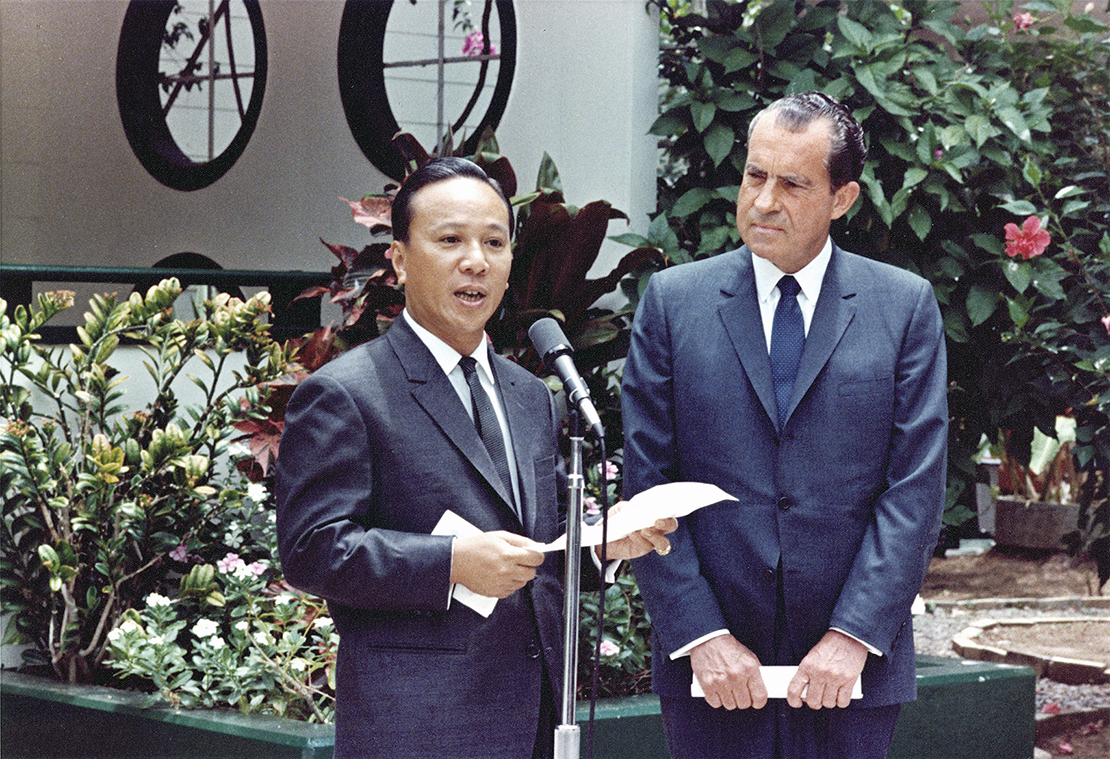The United States consistently identified corruption—defined here as efforts of government officials to enrich themselves or close associates using public funds—as one of the most pervasive problems within the South Vietnamese government.
Leaders in Saigon found it hard to build popular support when the economic and political system appeared to be rigged in favor of a small, well-connected elite. The Viet Cong made corruption a central theme, promising to eliminate all profiteers and dishonest officials once they seized power.
Corruption sapped South Vietnam’s military strength when senior officials pocketed money or resources meant for the armed forces, set up rolls of “ghost soldiers” to collect the pay for nonexistent troops, took bribes in exchange for contracts or put personal connections above proven abilities when they doled out jobs.
The massive infusion of U.S. dollars into South Vietnam between 1965 and 1974 fed the corruption. During that period, the United States provided an average of $1.5 billion in economic and military assistance each year to a country whose annual gross domestic product averaged about $10 billion.
As in Iraq and Afghanistan more recently, the attempt to build a stable government in a poor, war-torn region requires a vast amount of money and often enriches the well-connected instead of funding crucial needs.
It is difficult to determine the extent that corruption weakened South Vietnam. Between 1963 and 1967, when the South Vietnamese political landscape was in turmoil, American officials pushed anti-corruption measures as a priority for “winning hearts and minds” and thus winning the war.
During the Tet Offensive of January-February 1968, the communists attempted to cripple the new government of President Nguyen Van Thieu, who became head of state in 1967. In the wake of the crisis, Thieu tamped down on corrupt activities within the military and helped the South Vietnamese armed forces emerge stronger than before.
Some corrupt South Vietnamese officials went to prison, but kickbacks, skimming and insider dealing remained until the fall of Saigon in 1975.
The 1973 Arab oil embargo, aimed at supporters of Israel, raised the price of oil and created inflation around the globe that hurt Western economies and countries they backed more than it hurt communist countries. Inflation’s effect on the U.S. government’s budget was one of the factors in the aid reduction to South Vietnam in 1974. With inflation and aid cutbacks, Thieu’s government struggled to fund its military. Rampant inflation was more destructive than corruption. The final blow was the North Vietnamese blitzkrieg of early 1975.
Corruption continued to be a major problem even after the communists took power. In 2021, Transparency International’s Corruption Perception Index, which rates countries for corruption on a sale of 0 (highly corrupt) to 100 (very clean) placed Vietnam at 39— a slight improvement from its score of 31 a decade earlier. South Vietnam may have had a problem with corruption, but the communist government has proved to be no more honest.
Dr. Erik Villard is a Vietnam War specialist at the U.S. Army Center of Military History at Fort McNair in Washington, D.C.
This article appeared in the Autumn 2022 issue of Vietnam magazine.





